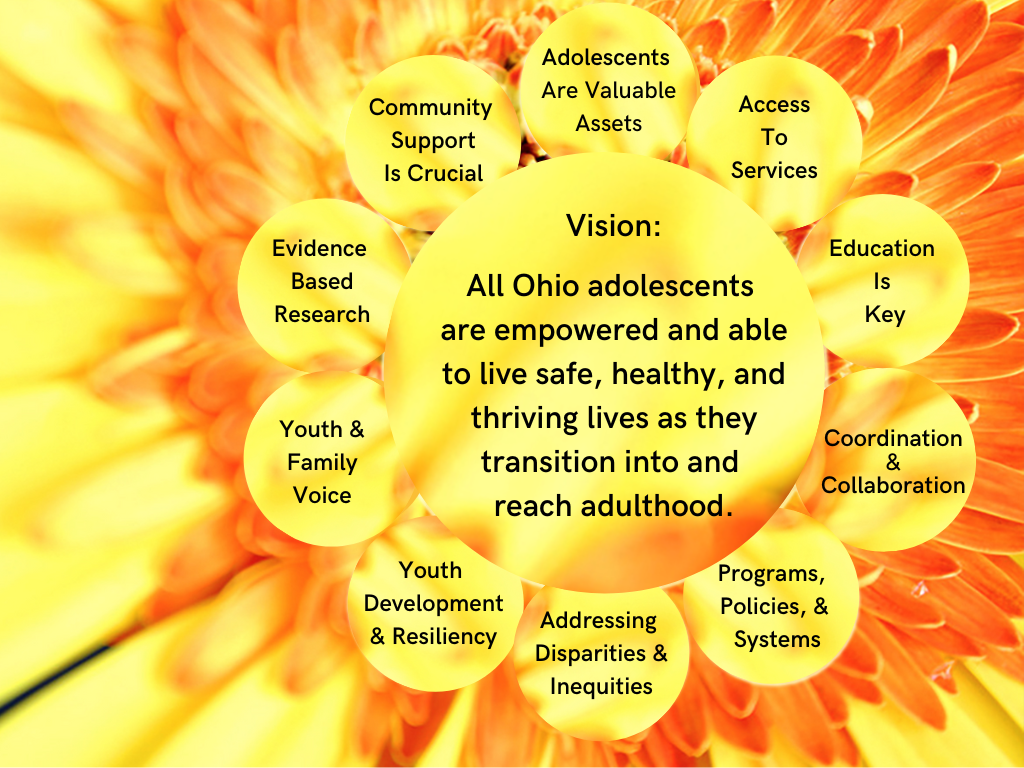The Guiding Principles of the Ohio Adolescent Health Partnership are as follows:
1. Adolescents are valuable assets to society with unique developmental needs. They are resources to be nurtured rather than problems to be fixed.
2. Access to holistic, affordable, and developmentally and culturally appropriate services, including preventive services, is essential to effectively meet the unique health needs of adolescents.
3. Coordination and collaboration among state and local adolescent health systems, services and initiatives is essential to effectively deliver holistic, quality care.
4. Education is key to ensuring adolescents develop critical thinking skills to access appropriate services and make positive behavioral choices.
5. Disparities and inequities must be addressed within all adolescent health policies, programs and systems.
6. Evidence based research should be used when selecting interventions and strategies and when evaluating adolescent health programs.
7. Positive Youth Development and resiliency principles should be incorporated into all adolescent health interventions in order to empower adolescents to achieve optimal health and be active participants in their own care.
8. Programs, policies and systems should be coordinated in order to create the infrastructure necessary to build sustainable change that will improve adolescent health outcomes.
9. Youth/family voice that engages adolescents and their caregivers in meaningful discussions related to adolescent health policies, programs and services is a critical component in providing services that are responsive to the needs of adolescents.
10. Community support is a crucial factor providing families and communities the needed resources and tools to help adolescents thrive.
1. Adolescents are valuable assets to society with unique developmental needs. They are resources to be nurtured rather than problems to be fixed.
2. Access to holistic, affordable, and developmentally and culturally appropriate services, including preventive services, is essential to effectively meet the unique health needs of adolescents.
3. Coordination and collaboration among state and local adolescent health systems, services and initiatives is essential to effectively deliver holistic, quality care.
4. Education is key to ensuring adolescents develop critical thinking skills to access appropriate services and make positive behavioral choices.
5. Disparities and inequities must be addressed within all adolescent health policies, programs and systems.
6. Evidence based research should be used when selecting interventions and strategies and when evaluating adolescent health programs.
7. Positive Youth Development and resiliency principles should be incorporated into all adolescent health interventions in order to empower adolescents to achieve optimal health and be active participants in their own care.
8. Programs, policies and systems should be coordinated in order to create the infrastructure necessary to build sustainable change that will improve adolescent health outcomes.
9. Youth/family voice that engages adolescents and their caregivers in meaningful discussions related to adolescent health policies, programs and services is a critical component in providing services that are responsive to the needs of adolescents.
10. Community support is a crucial factor providing families and communities the needed resources and tools to help adolescents thrive.

